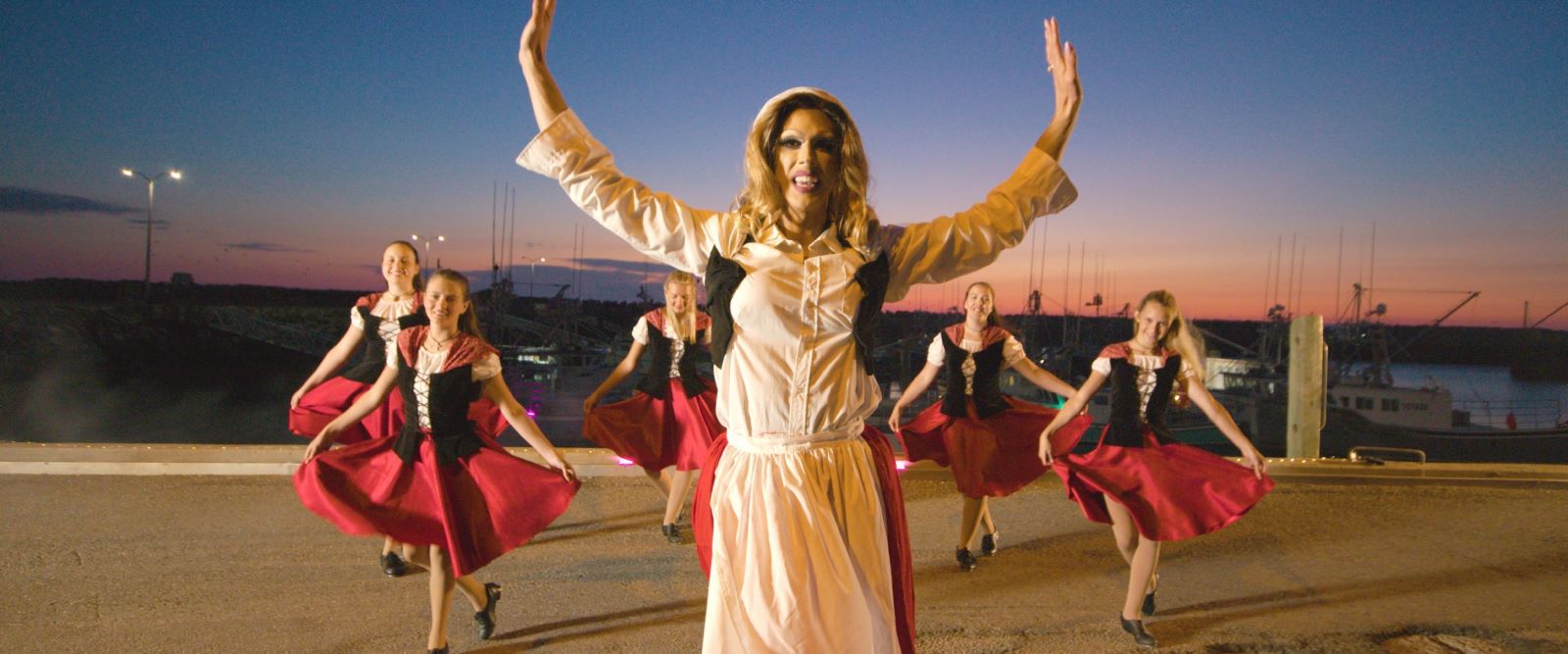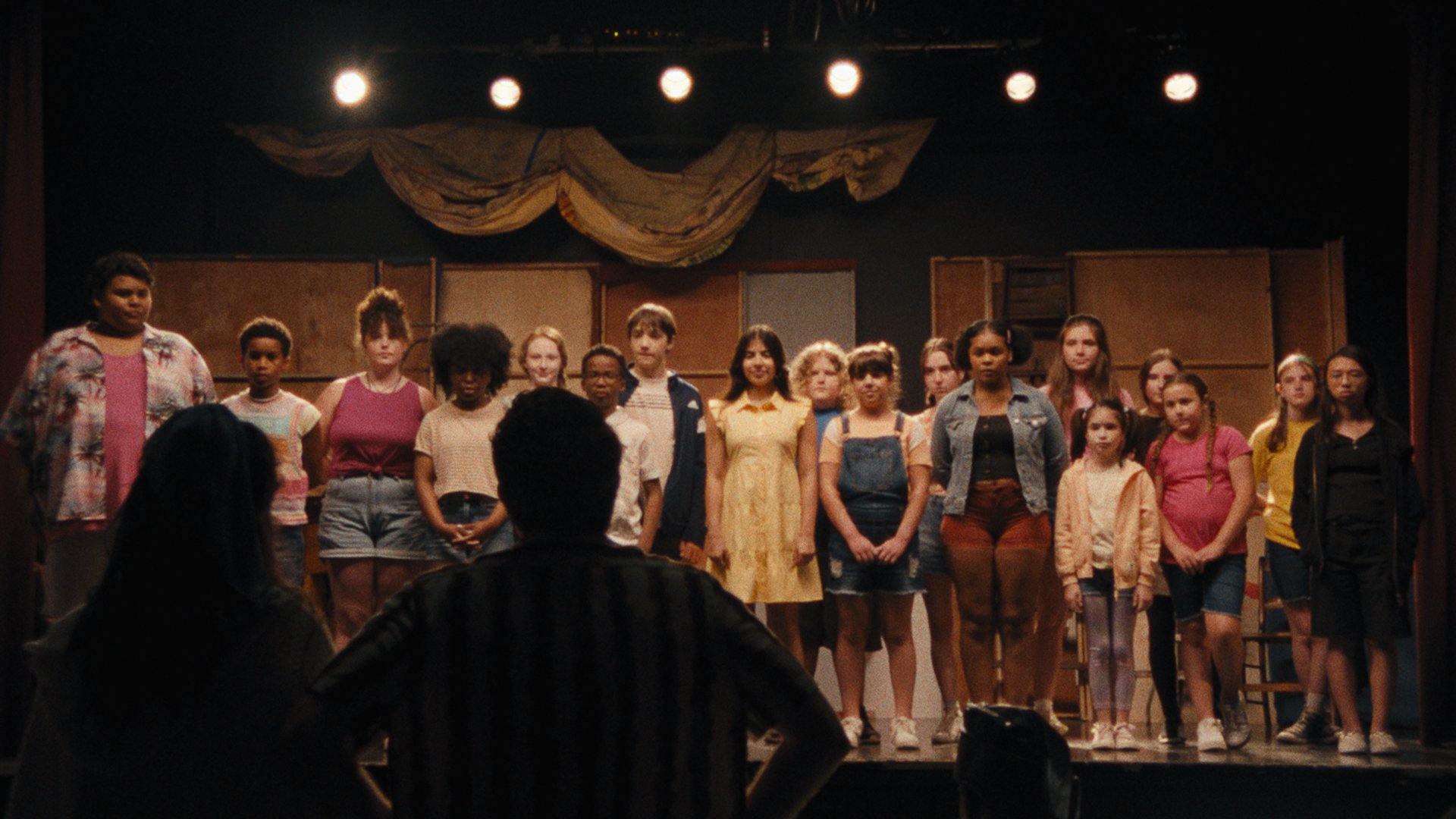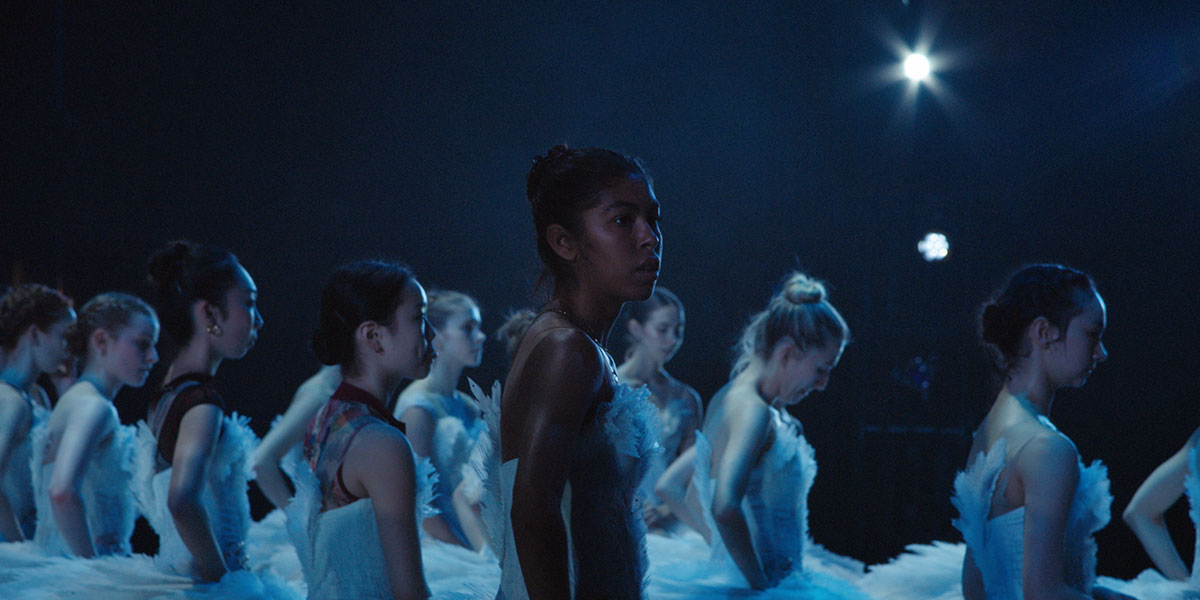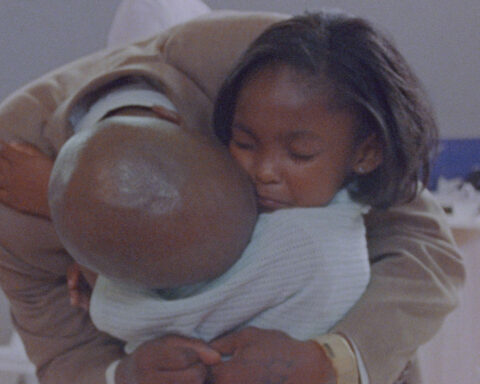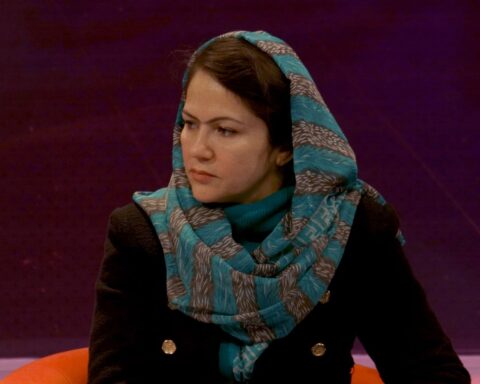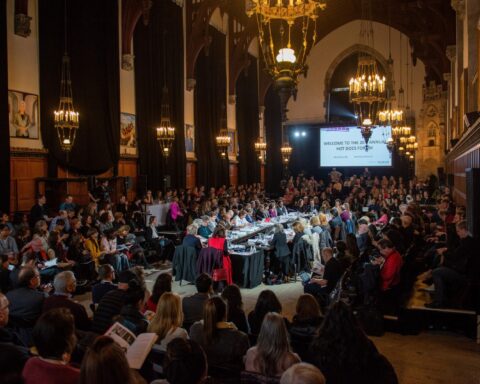Y’a une étoile
(Canada, 72 min.)
Dir. Julien Cadieux
Program: Les Fantastiques Week-End Du Cinéma Québécois
Julien Cadieux’s hybrid documentary/musical Y’a une étoile wastes no time acclimatizing audiences to its unique approach to storytelling. The film opens with Samuel LeBlanc, a young transgender musician and member of the group Écarlate, lying in bed reciting the words to Angèle Arsenault’s song “De temps en temps moi j’ai les bleus.” Transported into a dreamlike Technicolor landscape with the simple slant of the camera, LeBlanc reenacts the sense of isolation that his younger self felt at school all while he and his Écarlate bandmates, Clémence Langlois and Daphnée McIntyre, sing a somber version of the song.
Subtly incorporating clothing changes to differentiate between fantasy and reality, Cadieux temporarily pulls viewers back to into the real world by showing LeBlanc answering questions from high school students about his transition. Recounting the difficulties of growing up queer in his native Acadia, LeBlanc plants the seeds from which the film’s central theme will sprout. Not wanting to simply tell a tale of hardship, Cadieux indicates early that the film will ultimately be one of hope and triumph. He hints at this in the way that he bookends the opening moments with McIntyre, accompanied by a group of well choreographed dancers, providing a jaunty and colourful rendition of the song’s final verses.
Just as a skilled painter carefully mixes colours that will bring their canvas to vibrant life, Cadieux’s combination of musical set pieces and documentary aesthetics perfectly fits the film’s exploration of identity. Using Arsenault’s musical catalogue as the production’s North Star, as the Acadian singer frequently sang about acceptance and being true to oneself, the music guides the documentary as Cadieux follows LeBlanc while he speaks to individuals about what it is like to be queer in Acadia.
Often feeling as if they were on an island of one, many of the people LeBlanc chats with share how difficult it is to live in a community with no visible LGBTQ representation. As adults who are now comfortable in their own skin, they still must deal with those who continue clinging to outdated ideas about gender. As Matty, a hairdresser who happens to be transgender, points out when recounting how some curious individuals invade their personal space, transpeople are not unicorns in a zoo to be stared at and prodded.
What is fascinating about the conversations that LeBlanc has over the course of the documentary is the common thread of having to navigate two identities. While coming to terms with their true self was a challenge, one Two-Spirited interviewee recalls denying their Indigenous heritage for a long time while they also wrestled with what it means to be Acadian. The sense of isolation and close-mindedness that comes with being different in a rural community is often one of the catalysts that lead queer individuals to leave their hometowns.
Y’a une étoile aims to curb this sailing away to other shores by reminding folks that they have a right to set their anchors where they were raised. While talking to those who have moved back to Acadia, Cadieux’s film shows that, although the path may be tough at times, one can thrive and find one’s community in rural areas. The documentary emphasizes this sentiment by using the historic La Vieille Maison – the philanthropic legacy of famed dancer and early queer icon Adolphe Robicheau – to show that LGBTQ roots run deep in Acadian history.
If there is one minor quibble to be had with Cadieux’s documentary, it is that we are introduced to so many individuals, several of whom take part in the musical numbers, that there is not enough time to delve into every person’s story with the same level of depth. Even moments where LeBlanc reflects on the past with family members, like his mother and grandmother, feel a tad rushed.
An engaging work that blends finely crafted musical numbers and invigorating conversations, Y’a une étoile is endlessly charming. Filled with genuine heart and hope, the film will have you tapping your toes to Arsenault’s music while contemplating community, identity, and acceptance in a whole new colourful light.




